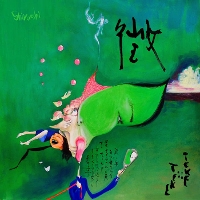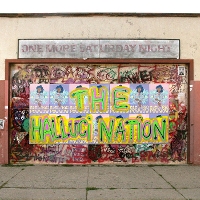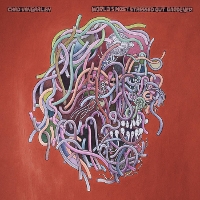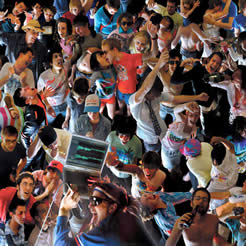Girl Talk: Making Top 40 Safe For Everyone ElseThis is Your MashUps on Crack. Fucking Awesome.By Scott Wood Girl Talk aka Gregg Gillis likes to fuck with sacred cows. He takes those tunes that you can’t escape—those ones in commercials, in the elevator, in your older cousin’s boombox—those songs everybody has heard of—even if they don’t know their names—and then he eviscerates them. Stealing the best pieces from superhits, Girl Talk weaves them into something new. And the end result is something both wondrous and strange. Think of your typical DJ mashup on crack. To give you an idea, “Bounce That” from Night Ripper clocks in at 3:23 and contains the following samples in chronological order: The Emotions “Best of My Love,” Purple Ribbon All-Stars “Kryptonite (I’m On It),” Benny Benassi “Satisfaction,” LCD Sounsystem “Daft Punk is Playing at my House,” The Breeders “Cannonball,” Stevie Wonder “My Cherie Amour,” Steve Winwood “Valerie,” DJ Funk “Booty Now that it top 40 is about nothing more than forcing the latest single down your throat (until you like it), Girl Talk has come to rescue our ears. Scott Wood: Ok, let’s start with the name, Girl Talk. I have heard several conflicting stories explaining it. One rumor said that it was the title of an early demo released by Tad, an obscure grunge band from the 90s. What is the real deal? Girl Talk: It’s actually the nickname my mom gave me when I was about three or four… Scott Wood: How do you get ‘Girl Talk’ from ‘Gregg’? Girl Talk: Just the alliteration on the Gs. I am not sure what the deal was with that. Scott Wood: Night Ripper has surfaced in a time where everyone seems to be wrestling with file sharing, licensing and intellectual property issues. A lot of reaction to the record has been, ‘Holy Shit! It’s good—and none of the samples are cleared.’ Do you think you have benefited by becoming a lightning rod for all that? Girl Talk: I’ve always just done the music to do the music. I grew up listening to rap music when I was a kid like everybody. It’s sample-based. When I started doin’ it, I was not trying to push any issues, but it’s obviously stuff that interests me. It absolutely has helped it out. After every show I meet people and we always get into conversations and debates over originality and file sharing. There’s so many different angles you can talk about beyond just the music. Scott Wood: Your previous album was similar to this but Night Ripper seemed well timed to take advantage of this music industry zeitgeist. Girl Talk: Yeah. The way I do the music has been the same on both the albums. I think you could talk about file sharing or sampling laws or originality or anything like that on any of my albums. The new album did a little better because it is a little more accessible. It also just looks good on paper, you know? It’s a good press sheet. This many recognizable samples in this amount of time—a lot easier than my other album, where it was more difficult to explain it in two sentences. Scott Wood: You get asked a lot if you are worried about getting sued by the Recording Industry. Do you think you’ve been ignored because the album hasn’t sold millions, yet, or because they don’t want to go down that road and test that legally? Girl Talk: First of all, the majors definitely know about it. They’ve contacted me, not legal departments, but A&R people to work with me on stuff, doing remixes. I wanna believe that it’s not that they think they are gonna loose a court case. I think it’s that they want to embrace this music that is potentially helping their artists out. The album has gotten, in general, good reviews and it’s on all these major publication year-end, best-of lists. Enough so that it speaks that it has become its own entity, beyond the source material. I think its pretty clear that no one’s gonna buy the my album instead of someone I’ve sampled. I don’t think I am hurting anyone’s sales. And I think they realize that. Of course, during the past three or four years, the industry’s just trying to learn how to adapt to this new music market, the digital age. No one knows how to do it. I think my record’s a great example of something that can be helpful for everyone. Just like file sharing… immediately there’s a knee jerk reaction to stop it—even with The Grey Album or Negativeland… Now it’s almost as if they’ve been down this road, they know it, and now their like, ‘How can we use it?’ I’ve been approached—I don’t want to name drop any major labels cuz I’m not doing it—to do major label catalogue mashups as a promotional thing straight up. That just says right there that they are thinking, ‘This can be so helpful for us as a vehicle.’ And in general a lot of stuff that I sample was not necessarily ‘cool’ with young kids to begin with… and I play primarily to a young audience. Not necessarily the rap music, but a lot of the older soft rock, even classic rock samples. A lot of people see it as reinventing this music that they put out for a new audience. Scott Wood: Your Girl Talk t-shirt fearlessly declares that you are ‘not a DJ.’ Some purists refuse to call you a DJ and derisively call you a ‘party facilitator.’ What’s your take on that? Girl Talk: The whole DJ thing… I am not offended by the term. Not saying that I am better or worse… I think DJing is an incredibly difficult art form and I don’t necessarily know how to do it. Whenever I say that I am just saying that I am not a traditional DJ. If your definition of a DJ is someone who plays other’s peoples music, in any form and that includes sample-based stuff, then I am a DJ. I kinda did the t-shirts and the slogan just because you hear my record and you might think, “Wow. He would be a great party DJ. He can do this crazy stuff.” That’s all I know how to do is this sample-based material. It’s not like I can cue up this Jay-Z track to fade into my stuff—I don’t know how to do that. All I know how to do is remixes of people. So when I perform live, it’s all sample-based. It’s all what I would consider my own creation. It’s all remixes of stuff, 100%. At no point in my set do I let a song coast for a minute, and never do I play someone else’s remix. I think it’s a little different from DJing. For instance, Diplo, who is an amazing DJ, will play all these remixes. It’s not like he is cueing up these samples live, more like just blending in remixes. I’ve always just considered my self a producer. Just like what Kanye West would do with the Chaka Khan samples, make a beat out of it. I just make Girl Talk music out of all of these sources. Scott Wood: You recently quit your day job. Congratulations. Could you talk a little bit about it, because it sounds like up until just recently you had a bit of a secret identity? Girl Talk: I was a biomedical engineer in Pittsburg, PA—it’s where I still live. It was a complete 9-to-5 job where I go into a cubicle and hook electrodes up to people and collect data. I happened not to tell them about the music thing and then it got out of control. Up until the last day that I quit… I think that someone may have known, they were just too embarrassed to call me out, but as it stood in the office no one knew. I told them I was quitting to travel the world—which was the truth. Yeah, the last year… starting in October of 2006, I had just about every single weekend, a show on a Friday and Saturday, and then back and do the day job… It was awesome, I love doing the shows, but it became really fatiguing. When you do that schedule, there’s just no day to sleep in. There’s always a plane to catch or work to go to. It was just too much. I realized that I could support myself financially at least a year doin’ the shows. So, I’m livin’ the dream right now. Scott Wood: That’s awesome. I notice that even when you quit, you didn’t divulge your secret identity. Girl Talk: Yeah, it would have been awkward, just on a social level. They knew me as a specific guy. When I go to the office everyday, I just sit down and put on my headphones and start doing the work—quiet guy in the corner. I go out for beers with the guys, occasionally, but they weren’t my friends, just work partners. So it would have been hard to explain. Like, ‘Alright guys, I’m quitting to go play a sweet sixteen party with Diplo then a sold out show in Vancouver on the weekend.’ It would’ve been really weird. And second, I wanted to leave on good terms. Not that I lied about anything. I didn’t want them to perceive me in the wrong way, like, ‘I have been hiding this big secret from you.’ There are people I want to have on my resume and help me out in the future. I don’t plan on doing music forever. Yeah, I wanted to leave on good terms and not weird them out. Scott Wood: So they think you are going to see the pyramids and visit the Dalai Lama and then you are going to come back? Girl Talk: Yeah they’re expecting postcards. So maybe I’ll drop one in the mail today. Scott Wood: I read a quote about you where the critic said that you were subversively using indie rock to legitimize hip hop. Like the only reason some people will listen to rap is if it backed by a Pixies sample. But if you look at the sales and cultural impact of both, you could make the argument that you are using hip hop to legitimize or popularize indie rock. Girl Talk: It’s funny, cuz when you’re like a scrawny white dude and you make a record like this, people are obviously gonna be like, ‘Oh well, he’s talking this rap music and putting it into the indie world where’s he’s from.’ It’s funny when people say that… It’s true, there are people who don’t normally listen to rap music and will only listen to it with me. But there’s absolutely hip hop kids who email me and don’t know what that Pixies sample is, so I let them know. So I think it works both ways. I don’t like to think of it as like an indie versus rap, or indie versus major label world. The indie output on the album to me is absolutely minimal. I mean I like that stuff, I grew up listening to The Pixies, but my main music interest these days is radio music, everything from top 40 rap to top 40 classic rock. I think the album reflects that—as far as The Pixies or Pavement or Sonic Youth—all of that stuff to me, that’s the minority there. If there’s anything that’s funny just cuz I put it in there, it’s that stuff. I don’t like to sample anything ironically, but it’s such a small part of it. Whenever people are like, ‘Oh, these indie dance kids only dance to pop music only when Girl Talk plays it.’ But if you listen to the album, they’re dancing to Boston, and they’re dancing to James Taylor, and they’re dancing to Young Jeezy and to Nirvana. It’s just so all over the place; it’s what anyone listens to. Even a lot of the indie music I sample, like the Boredoms. It’s so obscure to kids picking up Franz Ferdinand records. Scott Wood: I like the recontextualization. It makes the music open to everyone. Girl Talk: It is hip hop based lyrics and I’ve always been a lover of hip hop. Sample-based music has always existed in hip hop. To me, I am just paying respects to this art form. Like, I buy Public Enemy records when I’m in fourth grade, and now I’m doing what they were doing. It’s not like I was the first person to do this. Even though, there is a lot more original instrumentation in rap on the radio these days, you pick up a new Bone Thugs N Harmony album and they sample Fleetwood Mac on it. Everyone’s doin’ it and they have always done it since 80s rock. I like The Pixies and I’ll sample them and I’ll sample anything I like. I try not to have these walls set up in my mind about these genres and worlds what people should or shouldn’t be into. Scott Wood: You have a really kick ass live show. Words like ‘spastic’ or ‘frenzied’ have been tossed out there. And you tend to end up in just your tighty-whities. Girl Talk haters say that you have to spazz out because, otherwise, you would be just some dude pressing his laptop’s Space Bar on the stage. Girl Talk: Everything I play sample-wise is live. So, every time you hear a sample change, it’s actually me clicking the mouse. As far as doing this music, you hear the record and you like it and wanna come out to the show because you like the arrangement and because you like the editing—and that’s what I do live. I spend a considerable amount of time, probably more than most bands, practicing every week, trying to come up with new material. When a As far as this type of music goes, it’s as live as it possibly could be. The antics just come from my background where I’m so used to playing with bands. People like to dance now, so it’s not as important for me to go up there and act like a schmuck. But previously when I was opening up for some rock band and they couldn’t give a damn about this remix I am doing with Hall and Oates—so you know, you gotta loosen them up and get into the crowd. Usually I play on a Friday or Saturday, I have a few drinks. I like to have a good time, rather than get up there and bore myself to death. Scott Wood: What’s your warm up routine for creating that chaos? Girl Talk: I really don’t do much. I used to stretch out a bit, but I like going into it raw now. I like to go into it tense and work my way out. I like the beginning to be awkward for me and then just work through it with people. I usually play with bands so its not like everyone’s been dancing all night. Some nights I get super drunk and play, other nights I am stone cold sober. I have no routine. I try to do some push-ups in case my shirt comes off, so when I get up there my pecs don’t look so weak, but that’s about it. Tune in to the interview show with host Scott Wood, every Monday @4:30pm on CJSF 90.1FM for more interviews with your favorite indie artists. You can also listen online at www.cjsf.ca. |
Reviews

Mngwa
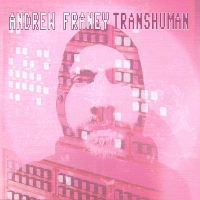
Andrew Franey
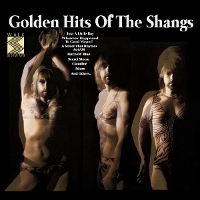
The Shangs

Alex Cuba

Tri Nguyen
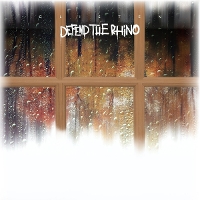
Defend The Rhino

Talltale
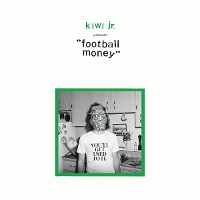
Kiwi Jr.

Plaster
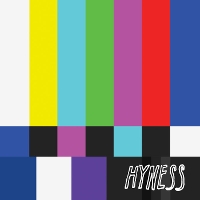
Hyness
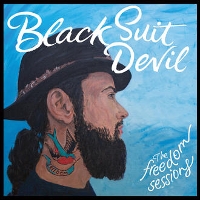
Black Suit Devil
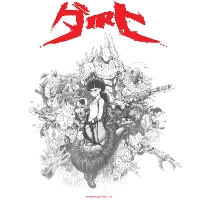
Yamantaka // Sonic Titan
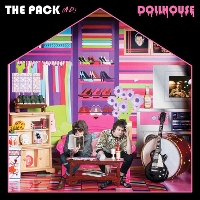
The Pack A.D.
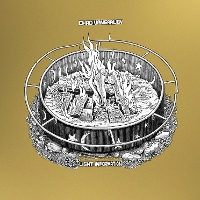
Chad VanGaalen

Potengowski Anna Friederike
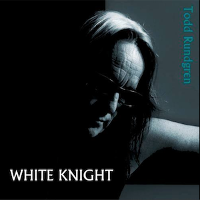
Todd Rundgren

Old 97's
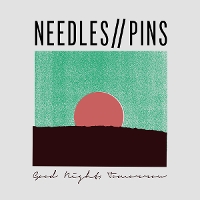
Needles//Pins


